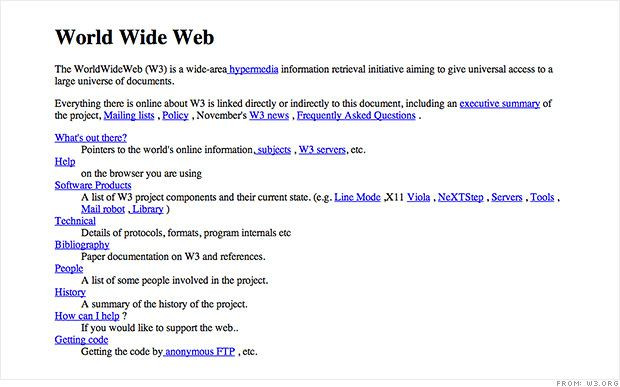World Wide Web Turns 25: Creator Of First Ever Website Calls For 'Digital Bill Of Rights'

The World Wide Web has officially been around for a quarter of a century.
British physicist Tim Berners-Lee proposed the idea for an infrastructure called the World Wide Web on March 12, 1989. The original idea was to create a way for universities and researchers to share data and ideas with each other over the Internet.

Berners-Lee developed the idea over the following year at the CERN physics laboratory in Geneva and launched the first website on Dec. 20, 1990. The site gave an outline of Berners-Lee’s World Wide Web project and showed how to create other Web pages.

In 1993, CERN announced that WWW would always be available for free to all people, and 25 years later there are billions of active websites.
To commemorate the day, Berners-Lee wrote about the project on the official Google blog.
“Now about 40 percent of us are connected and creating online,” Berners-Lee said. “The Web has generated trillions of dollars of economic value, transformed education and healthcare and activated many new movements for democracy around the world.”
Berners-Lee also looked to the future of the Web, at getting the rest of the world connected, at creating standards for openness, and at developing a system to hold those who violate Internet privacy accountable. He called for each country to develop a “digital bill of rights” to ensure a free and open Web in the future.
You can learn more about Berners-Lee's project at webat25.org.
© Copyright IBTimes 2024. All rights reserved.






















